Healthcare refers to providing healthcare services to individuals, families, and communities. Healthcare is a broad term encompassing any type of medical treatment, diagnosis, and preventive measures offered by various organizations, including doctor’s offices, hospitals, clinics, and private practices. Moreover, when someone mentions ‘healthcare,’ you probably think about medical centers, hospitals, and clinics. But it also has to do with virtual appointments, remote patient monitoring, and other health-related services that offer a broad range of benefits to the healthcare industry. The use of telemedicine within healthcare is growing at a swift pace. According to one estimate, today, approximately 270 million people use telemedicine services worldwide.
What is a telemedicine service?
Telemedicine or Telehealth is a medical service that uses telecommunication technologies to provide remotely monitored patient care and health care information from clinicians to patients. The communication is live, and the relay between physician and patient occurs without direct face-to-face communication, allowing for better care coordination and faster decision-making. Telehealth can be done via direct video connections or real-time communications and data transfer between direct point-to-point transmissions. Telehealth services are also referred to as telecare, Telehealth, or telemedicine. The World Health Organization defines Telehealth as “the use of information technology to facilitate delivery of health-related services to patients.” Telemedicine has been described as “providing access to health-related information via telecommunications networks.”
What are the benefits of VoIP Technology in Healthcare?
VoIP technology has been around for many years. It’s used in home and office telephony, but its use in healthcare isn’t as well known. With more and more companies moving to VoIP technology, several benefits can help healthcare improve efficiency and save time. Here are the top benefits of VoIP Technology in Healthcare:
Cost Efficiency: VoIP technology has proven cost-effective for healthcare providers. VoIP can reduce costs by reducing the need for expensive equipment, such as dedicated phone lines, and eliminating the need for multiple voice access points. The use of VoIP also reduces the time spent on managing communications systems and on maintaining these systems. In addition, VoIP technology allows doctors and patients to communicate without having to pay for long-distance phone lines. This can save hospitals a massive amount of costs yearly on long-distance calls, which are usually charged per minute. Suppose patients and doctors speak more frequently and effectively than ever before. For example, if someone is sick at home with a bad cold or flu, they can use their computer or smartphone to call their doctor’s office instead of going into the office themselves.
Reliable Communication: VoIP technology is a great way to communicate with clients, patients, and other staff members. It allows you to have an interactive conversation with them through your computer or phone. The technology also allows you to leave messages on the answering machines of others so they can contact you back when it is convenient for them.
Collaboration: The most significant benefit of VoIP technology in healthcare is the increased ability to collaborate with other medical professionals. With this technology, you can instantly communicate with others from anywhere in the world and share information on patients. This can help to reduce errors in diagnosis and treatment, as well as save lives.
Improved Security: Security is a vital component of any business, but it’s especially crucial in healthcare because of the sensitive nature of patient data and the need to ensure that unauthorized parties can’t access data. VoIP technology helps you maintain security by providing encrypted calls and text messages and secure remote access to your network. Only authorized users can access your system, making it harder for cybercriminals to get their hands on sensitive information.
Schedule Management: Automated scheduling is a feature of VoIP technology that allows healthcare providers to schedule appointments for patients automatically. This can be done using a computer program or a human scheduler which uses the program to make appointments. It reduces the time spent on scheduling by eliminating the need for humans to schedule appointments manually.
Conclusion
VoIP technology can be a big help to business leaders in the Healthcare industry. With VoIP technology, you can provide patients with less expensive options while allowing doctors and nurses to care for more patients at any time. It offers greater efficiency, a boost to patient-doctor relationships, and lower costs. The field of medicine has been at the forefront of technological advancements over the past several years. As a result, teleconferencing is becoming easier to establish, and healthcare providers are becoming more efficient at treating those who need urgent care in remote locations.
Need more details on how VoIP could help improve your business’s overall communication? Beyontel is a trusted and reliable IT consulting company specializing in cloud-based VoIP and unified communication. Reach out to us today!









